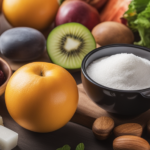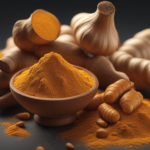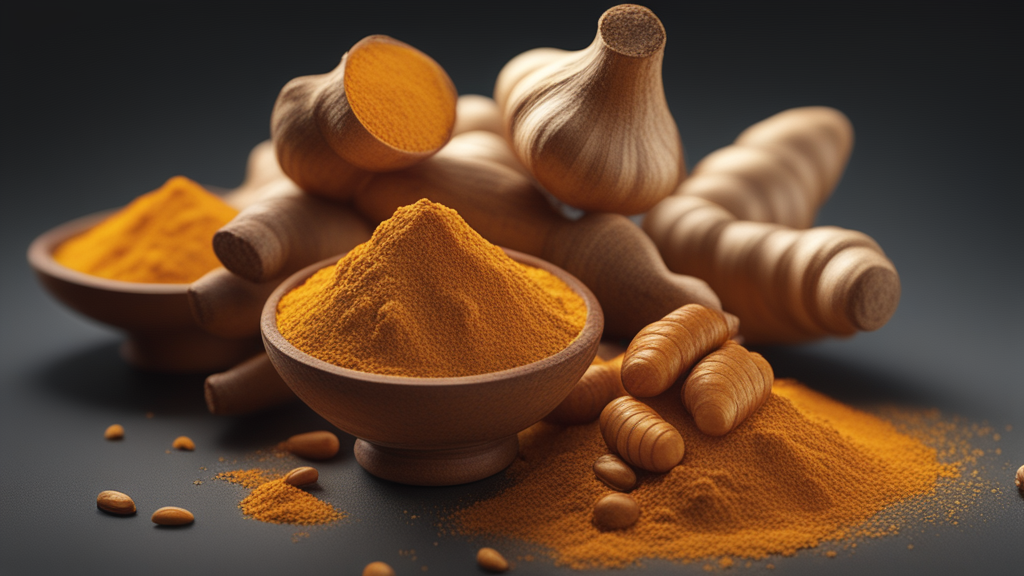Cinnamon is more than just a delicious spice that adds warmth and flavor to your favorite dishes. For centuries, it has been used in traditional medicine for its numerous health benefits. Among its most impressive abilities is its potential to help control blood sugar levels. In this article, we’ll take a deep dive into how cinnamon works as a natural solution for maintaining healthy blood sugar levels, backed by science and practical advice for incorporating it into your daily routine.
What Is Cinnamon?
Cinnamon is derived from the bark of trees belonging to the Cinnamomum family. The two most common types are Ceylon cinnamon (often referred to as “true” cinnamon) and Cassia cinnamon, which is more commonly found in supermarkets. Both types contain powerful compounds, but Ceylon cinnamon is considered to be of higher quality and safer for long-term use.
How Does Cinnamon Help Control Blood Sugar?
Cinnamon has been shown to have several mechanisms that contribute to blood sugar control. Here are some of the key ways this spice works:
1. Increases Insulin Sensitivity
One of the primary ways cinnamon helps regulate blood sugar is by increasing insulin sensitivity. Insulin is the hormone responsible for moving glucose from your bloodstream into your cells, where it can be used for energy. People with insulin resistance have a harder time managing blood sugar levels, leading to conditions like prediabetes and type 2 diabetes. Cinnamon helps improve insulin sensitivity, making it easier for the body to lower blood sugar levels.
2. Slows Down Carbohydrate Breakdown
Cinnamon has been found to slow the breakdown of carbohydrates in the digestive tract, reducing the speed at which glucose enters the bloodstream. This can help prevent the spikes in blood sugar that often occur after meals, leading to more stable levels throughout the day.
3. Mimics Insulin
Cinnamon contains a compound called methylhydroxychalcone polymer (MHCP), which has been shown to mimic insulin’s effects. While it doesn’t replace insulin, MHCP can increase glucose uptake by cells, effectively lowering blood sugar levels.
4. Anti-Inflammatory Properties
Chronic inflammation is linked to insulin resistance and higher blood sugar levels. Cinnamon’s potent anti-inflammatory properties can help reduce inflammation in the body, contributing to better blood sugar control.
5. Antioxidant Effects
Cinnamon is rich in antioxidants, which help fight oxidative stress—a condition that can lead to insulin resistance and other metabolic issues. By combating oxidative stress, cinnamon supports overall metabolic health, including blood sugar regulation.
Scientific Evidence Supporting Cinnamon’s Role in Blood Sugar Management
Numerous studies have explored cinnamon’s effects on blood sugar levels. Here are some key findings:
- A 2003 study published in the journal Diabetes Care found that consuming 1 to 6 grams of cinnamon daily for 40 days significantly reduced fasting blood sugar levels in people with type 2 diabetes.
- A 2011 meta-analysis of eight clinical trials concluded that cinnamon intake is associated with a notable reduction in fasting blood glucose levels.
- A 2019 study published in the Journal of the Endocrine Society demonstrated that cinnamon supplementation improved insulin sensitivity in participants with prediabetes, suggesting that it could help delay or prevent the onset of type 2 diabetes.
How to Incorporate Cinnamon into Your Diet
Adding cinnamon to your diet is easy and can be done in various ways:
- Morning Coffee or Tea: Sprinkle a dash of cinnamon into your coffee or tea for a flavorful and health-boosting start to your day.
- Oatmeal and Cereal: Cinnamon pairs perfectly with oatmeal, cereal, and yogurt, adding warmth and spice without extra sugar.
- Smoothies: Blend cinnamon into your smoothies for an extra kick of flavor and health benefits.
- Baked Goods: Use cinnamon in healthy baked goods like muffins, pancakes, or granola bars.
- Savory Dishes: Cinnamon can also be used in savory dishes, such as curries, stews, and roasted vegetables, adding a unique depth of flavor.
How Much Cinnamon Should You Take?
While cinnamon can be beneficial, it’s important to consume it in moderation. Studies suggest that 1 to 6 grams (about 1/2 to 2 teaspoons) of cinnamon per day can help reduce blood sugar levels. However, it’s essential to choose Ceylon cinnamon over Cassia cinnamon for long-term use, as Cassia contains higher levels of coumarin, a compound that can be harmful in large doses.
Precautions and Considerations
While cinnamon is generally safe for most people, there are a few considerations to keep in mind:
- Consult Your Doctor: If you are currently taking medication for diabetes or have any other health conditions, consult your doctor before adding cinnamon to your regimen. Cinnamon can enhance the effects of medication, potentially leading to hypoglycemia (low blood sugar).
- Ceylon vs. Cassia: As mentioned, Ceylon cinnamon is the preferred type for regular consumption due to its lower coumarin content. If you’re using Cassia cinnamon, it’s best to use it in smaller amounts.
- Allergies: Though rare, some people may be allergic to cinnamon. If you experience any adverse reactions, discontinue use and consult a healthcare provider.
Q&A: Frequently Asked Questions
Q1: Can cinnamon replace my diabetes medication?
A1: No, cinnamon should not be used as a replacement for prescribed diabetes medication. It can be used as a complementary approach to help manage blood sugar levels, but always consult your healthcare provider before making any changes to your treatment plan.
Q2: How quickly can I see results from using cinnamon?
A2: The time it takes to see results can vary depending on the individual and their overall health. Some people may notice improvements in blood sugar levels within a few weeks, while others may take longer. Consistency is key.
Q3: Is it safe to consume cinnamon daily?
A3: Yes, consuming cinnamon daily is generally safe, especially if you opt for Ceylon cinnamon. However, it’s important to stick to the recommended dosage of 1 to 6 grams per day to avoid potential side effects.
Q4: Can I use cinnamon supplements instead of the spice?
A4: Yes, cinnamon supplements are available and can be a convenient way to ensure consistent intake. Look for high-quality Ceylon cinnamon supplements and follow the dosage instructions on the label.
Q5: Does cooking affect cinnamon’s health benefits?
A5: Cooking with cinnamon doesn’t significantly reduce its health benefits. In fact, incorporating it into cooked dishes is a great way to enjoy its flavor and health properties.
















